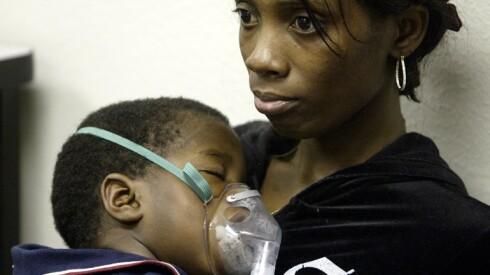-
A new study from the National Electrical Manufacturers Association predicts a significant rise in electricity demand, driven by the growth of data centers and increased electric vehicle adoption.
-
The financial advisory firm Curinos tapped the University of Washington and its innovation hub to support early-stage financial tech companies working in predictive decision-making, AI automation and customer experience.
-
Georgia, the Carolinas and even Alabama have seen intense wildfires spread over the past week. While fires aren't unusual in the South, experts say climate change is likely to lead to more severe threats going forward.
More Stories
-
A student group at Denham Springs High School won the national Samsung Solve for Tomorrow STEM competition with a project involving sensors to monitor Lake Maurepas and relay data to a public app.
-
A fledgling push to promote reforestation and climate mitigation relies on interactive maps and tracking tools. The state also hopes to plant more trees into "disadvantaged communities" by 2033.
-
As fires in Los Angeles County continue to burn, interest is piquing in the app run by a nonprofit in Northern California. Launched in 2021, it aggregates several relevant data streams and had 7.2 million users at year’s end.
-
California saw some of its steepest reduction in greenhouse gas emissions in the transportation sector, which has long been the single largest source of climate-warming pollution. Meanwhile, its economy grew.
-
The 2024 Republican platform could have a ripple effect on climate change research. Two California university researchers say the next four years will be stressful, but technological innovations give them hope.
-
The California Air Resources Board approved changes to the state’s Low Carbon Fuel Standard, to expand incentives for high-speed electric vehicle charging and advance the use of low-carbon fuels.
-
A new data-sharing platform at UC San Diego will bring the latest research and technology on wildfire ecology into one place, allowing researchers, government officials and other experts to collaborate on solutions.
-
Between its new $6.2 million 17-acre solar array to power campus buildings and the electricity it gets from hydropower from the New York Power Authority, Niagara University's carbon footprint is net zero.
-
Artificial intelligence is poised to become the next big energy hog and data centers stand to challenge sustainability goals. Some processing demands, however, can be shifted to periods when demand is low.
-
An 826-ton buoy hooked up at the U.S. Navy's Wave Energy Test Site off the coast of Oahu will be connected to the state's electrical grid by an undersea cable, making a small but important move away from fossil fuels.
-
The university intends to buy all of its energy from renewable sources by 2030 and achieve “net-zero” status by 2040 using solar arrays, electric buses, composting, renovations and new construction rules.
-
A new report by StreetLight Data shows that as vehicle use and traffic congestion continue to be a rising concern for the vast majority of U.S. metro regions, San Francisco alone is making progress.
-
The Connecticut Conference of Municipalities on Tuesday released a study that warns FEMA flooding maps of the state are outdated and makes 30 recommendations and promotes statewide standards on climate resiliency.
-
Experts say that while climate change did not start the Airport, Bridge and Line fires currently burning in Southern California, it did lay the groundwork for their aggressive spread and destructive impacts.
-
To combat evolving fire risks more efficiently, a federal fire agency is developing an emergency response system that uses data to inform action. In California, a new online map makes Clean Air Centers information more accessible.
-
From abolishing the U.S. Department of Education to cutting Title I funding and certifying teachers based on ideology, a controversial proposal from a conservative think tank would upend public education nationwide.
-
Researchers from Children’s Hospital Los Angeles and USC are working with AccuWeather experts to use environmental data to look for breakthroughs in diseases like stroke, heart disease, lung cancer and asthma.
-
Three engineering students at the University of Texas Permian Basin used a 3D printer at the university's makerspace to fashion devices for capturing and disposing of carbon dioxide from internal combustion engines.





























